Energy Efficiency: How Metal Roofing and Siding Can Lower Your Bills
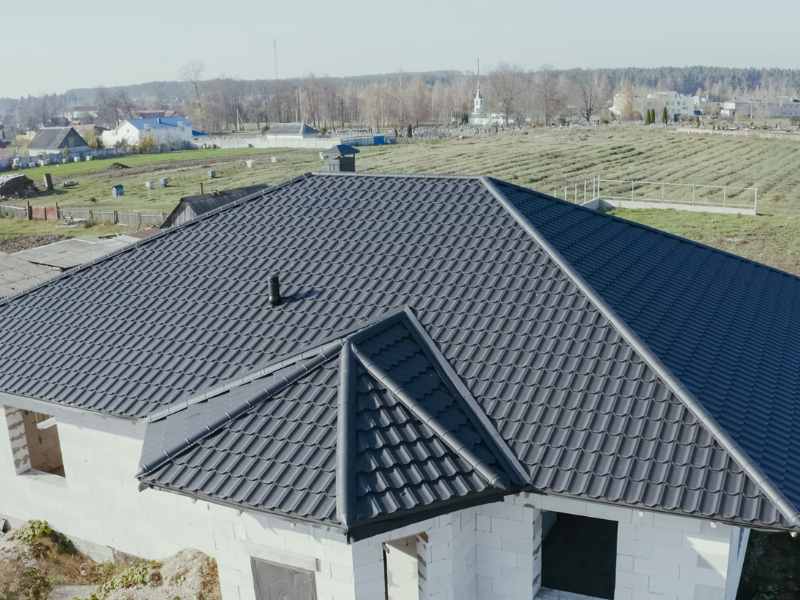
Energy efficiency is a critical consideration for homeowners and builders alike. One of the most effective ways to enhance energy efficiency in both residential and commercial buildings is through the use of metal roofing and siding. Metal roofing and siding not only provide superior durability and aesthetics but also significantly reduce energy costs.
This blog will explore how metal roofing and siding can lower your bills and why they are a smart choice for new construction and renovation projects.
Benefits of Metal Roofing and Siding
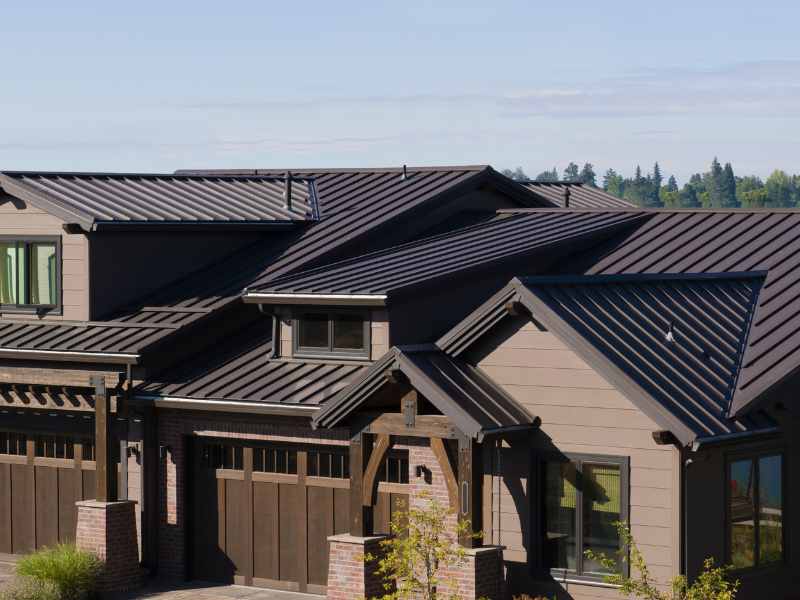
Superior Insulation Properties
Metal roofing and siding have excellent insulation properties, which help maintain a consistent indoor temperature. This reduces the need for heating and cooling systems, leading to lower energy bills. Metal wall panels and roofing panels reflect solar heat, keeping buildings cooler in the summer and reducing the reliance on air conditioning.
Reflective Coatings
Many metal roofs and siding panels come with reflective coatings that further enhance their energy efficiency. These coatings reflect the sun’s rays, minimizing heat absorption and keeping the building’s interior cooler. This reflective property is especially beneficial in warmer climates where cooling costs can be substantial.
Durability and Longevity
Metal roofs and siding are really tough and can last a really long time. Unlike regular roofs that need a lot of fixing or replacing, metal panels can handle really bad weather like heavy rain, snow, and strong winds. Because they’re so tough, you won’t need to spend as much money to maintain them, and they can help you save energy in the long run.
How Metal Roof and Siding Work to Lower Energy Bills
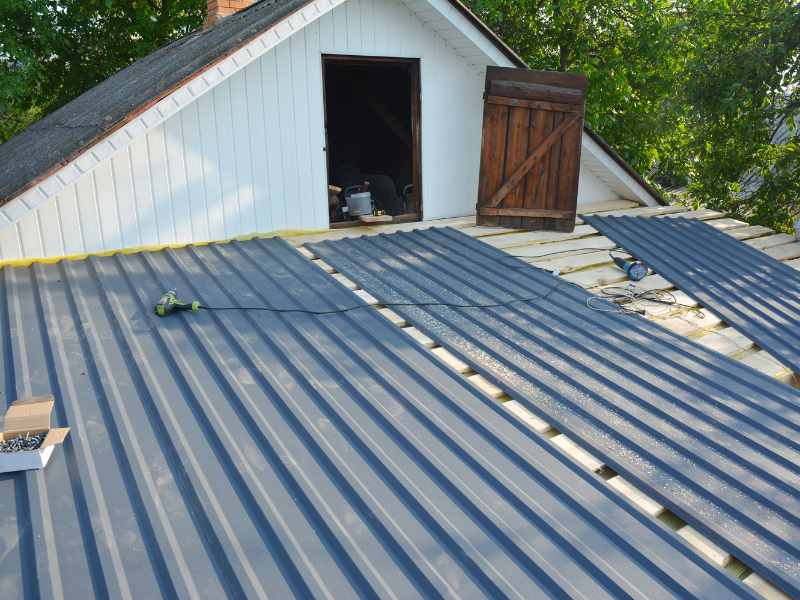
Reduced Heat Gain
Metal roofing and siding panels significantly reduce heat gain. During the summer, these materials reflect a substantial amount of solar radiation, preventing excessive heat buildup inside the building. This reduces the load on air conditioning systems, leading to lower energy consumption and utility bills.
Enhanced Thermal Efficiency
Metal roofing and siding contribute to enhanced thermal efficiency. When properly installed with appropriate insulation, they create a barrier that prevents heat loss during the winter. This means your heating system doesn’t have to work as hard to maintain a comfortable indoor temperature, resulting in energy savings.
Custom Lengths and Engineered Designs
Leading manufacturers of metal roofing and siding offer custom lengths and engineered designs tailored to specific building needs. Custom lengths reduce waste and ensure a perfect fit, enhancing the overall energy efficiency of the installation. Engineered designs optimize the thermal performance and structural integrity of the panels, providing maximum energy savings.
Applications in Residential and Commercial Buildings
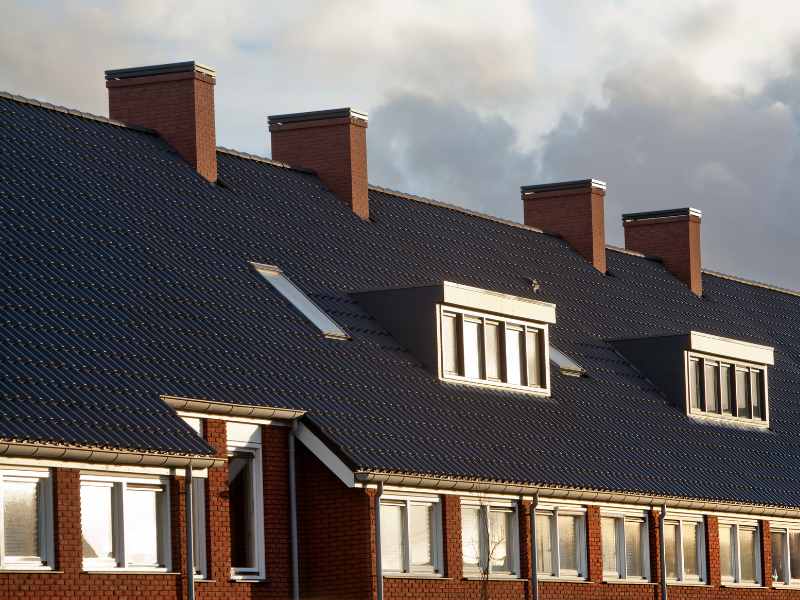
Residential Buildings
Metal roofing and siding are becoming increasingly popular in residential buildings due to their energy-saving benefits and modern aesthetics. Homeowners appreciate the lower energy bills and the added value that metal roofs and siding bring to their properties. Additionally, metal roofs can be installed with various finishes and colors, allowing for customization to match any architectural style.
Commercial and Industrial Buildings
For commercial and industrial buildings, energy efficiency is paramount. Metal roofing and siding panels are ideal for these applications because they offer superior performance, durability, and cost savings. Buildings such as warehouses, factories, and office complexes benefit from reduced energy consumption and lower operational costs.
ALSO READ: Best Metal Roof and Siding Color Combinations
Installation Considerations
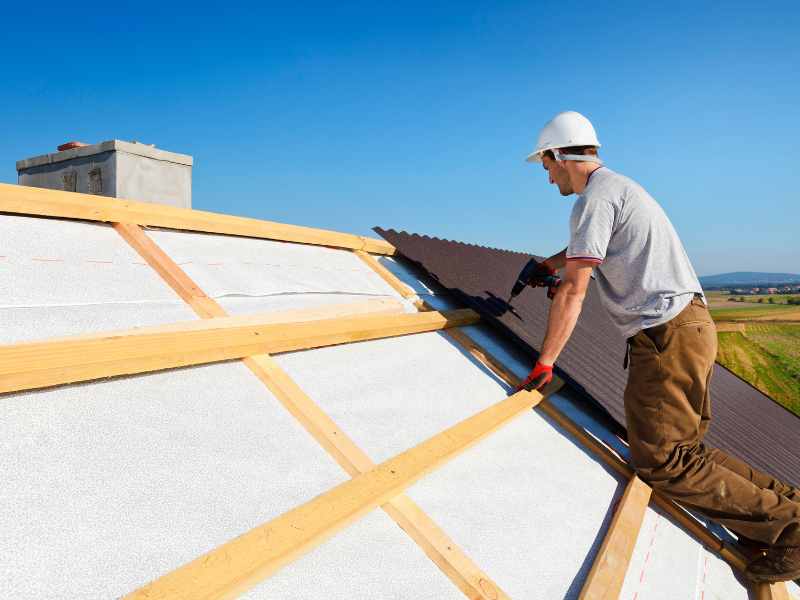
Professional Installation
Proper installation is crucial to maximizing the energy efficiency of metal roofing and metal siding. It is recommended to hire experienced roofing contractors who are familiar with the specific requirements of metal panels. Professional installation ensures that the panels are securely fastened and adequately insulated, preventing any potential energy loss. Fasteners play a critical role in ensuring the stability and longevity of the metal panels, making it essential to use high-quality fasteners designed for metal roofing and siding applications.
Choosing the Right Materials
When selecting metal roofing and siding materials, consider factors such as the type of metal (steel, aluminum, etc.), panel design, and finish. Corrugated metal panels, for instance, are popular for their strength and versatility. Ensure that the chosen materials are suitable for your building’s location and climate to achieve optimal energy efficiency.
Conclusion
Metal roofing and siding offer numerous energy efficiency benefits that can significantly lower your energy bills. Their superior insulation properties, reflective coatings, and durability make them an excellent choice for both residential and commercial buildings. By reducing heat gain and enhancing thermal efficiency, metal roofing and siding panels contribute to a more sustainable and cost-effective building solution.
If you’re considering new construction or a home remodeling project, explore the energy-efficient options provided by metal roofing and siding. Contact Plymouth Roofing & Siding today, a leading manufacturer or professional contractor, to learn more about custom lengths, engineered designs, and the installation process.